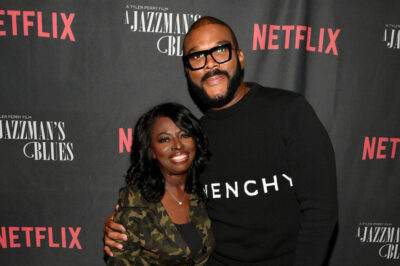Growing up, many people struggle with finding their place in the world, especially when they feel different from others. For those of us with vitiligo, a condition that causes the skin to lose its pigment in patches, this feeling of isolation can be overwhelming.
As a child, I often found myself looking for any sign of representation or understanding of my condition, but there was nothing. I couldn’t Google ‘Vitiligo’ and find anything. I had no examples to look up to, no support systems, and no community to turn to. The feeling of being alone in the world, marked by a condition that made me stand out in a way that I couldn’t fully understand, was something that colored my formative years.
But there was one person I would come to find solace in, someone who, despite never knowing of my existence, gave me the strength to embrace my “otherness.” That person was none other than Michael Jackson, a global icon whose influence continues to touch millions of lives, including mine.

The Loneliness of Vitiligo
Vitiligo is a condition that affects people of all ages, races, and backgrounds, yet it remains something many people don’t fully understand. It’s a disease that can cause deep emotional distress for those who live with it, especially when there is little public awareness or positive representation. For years, I grew up in a world where vitiligo was not widely discussed. The mainstream media didn’t highlight the struggles and experiences of people with this condition. Instead, people with visible differences were often marginalized, overlooked, or stigmatized.
Like many others with vitiligo, I spent years in the shadows, hiding my skin’s imperfections, uncertain of how the world would perceive me. I longed to see someone in the media who looked like me, someone I could relate to and who could show me that it was possible to live confidently in my skin. It felt like I was the only person in the world living with vitiligo. This deep sense of loneliness and isolation created a gap in my sense of self-worth, and I struggled to find my identity. As a child, I couldn’t help but wonder if others saw me the way I saw myself – as an outcast.
Michael Jackson’s Influence on My Life
In my search for representation, I found Michael Jackson. As a young person grappling with my own insecurities, I had no idea that Jackson, too, had vitiligo. Michael Jackson’s relationship with his skin and his appearance was complex and fraught with public scrutiny.
Throughout his career, he faced intense criticism and rumors about his changing appearance, but what many didn’t realize at the time was that Jackson’s skin was being affected by vitiligo. It was a battle he fought privately, and even though he faced immense media pressure and public judgment, Jackson never let it define him. He became the first visible figure to me who truly embodied the strength and confidence I desperately needed.
The way Michael Jackson handled his appearance and his vitiligo became a turning point for me. When I watched him perform, I saw someone who was unapologetically himself, someone who had transformed what many considered a weakness into a source of extraordinary strength.
I saw a man who was able to embrace his “otherness” and use it as the foundation of his artistry. Michael Jackson’s influence gave me permission to see myself in a new light. He made me understand that the uniqueness I saw as a flaw could be celebrated, that the differences I thought would always isolate me could be the very thing that made me special.
The Power of Representation
Representation matters, not only in the media but in all aspects of society. Growing up, I never saw anyone like me – someone with vitiligo – in the public eye. There were no figures who openly discussed their struggles with the condition.
But Michael Jackson, a man of immense talent and global recognition, didn’t just break barriers in music and entertainment; he broke barriers for people like me. He unknowingly gave people with vitiligo, including myself, a sense of belonging and the confidence to walk proudly in their own skin.
Jackson’s impact went beyond music. His courage in the face of public scrutiny about his skin condition made him a trailblazer, someone who used his platform to shine a light on the fact that beauty comes in many forms, and that difference is not something to be ashamed of. His legacy encouraged me and countless others to embrace who we are, to see our unique qualities as something to be proud of, not hidden away.
A Legacy of Strength and Confidence
One of the most powerful aspects of Michael Jackson’s influence on my life is the way he taught me to embrace my otherness. His journey wasn’t easy. He faced intense pressure from the public and the media, with many people questioning his identity and his appearance. But instead of crumbling under the weight of their judgment, Jackson chose to rise above it. He took what made him different and turned it into a force that resonated with millions of people worldwide.
In many ways, Michael Jackson’s struggle with vitiligo became symbolic of the broader fight for acceptance and understanding. He transformed a painful, misunderstood condition into a source of empowerment, showing the world that our perceived flaws are often what make us most extraordinary.
I wish, more than anything, that I could have had the chance to tell him how much his influence meant to me, to thank him for the courage he unknowingly imparted to people like me. If he were here today, I believe he would be proud to see how far we’ve come in changing the global conversation about vitiligo and other visible differences.
The fight for greater awareness and acceptance of vitiligo has made remarkable strides in recent years. Today, we see people with vitiligo taking center stage in various industries, from modeling and entertainment to social activism and sports. The visibility of people with vitiligo is growing, and the stigma that once surrounded the condition is slowly starting to fade. However, this progress would not have been possible without the groundwork laid by pioneers like Michael Jackson, whose bravery in confronting his own differences paved the way for future generations.
The Change That’s Been Made
Today, as I reflect on my journey, I can’t help but think of how much has changed. While growing up, I felt alone and unseen, now, vitiligo is being talked about and celebrated in ways that were once unimaginable. I no longer feel like the only person in the world living with the condition. The community of people with vitiligo has grown stronger, and we now have a shared sense of pride. Michael Jackson’s influence is woven into the fabric of that change. He was a trailblazer not only for his music but also for the acceptance of those who, like me, struggle with their skin condition.
I often wish Michael Jackson could have seen this transformation, the world where people with vitiligo are no longer hidden but embraced for their differences. I wish he could see how his legacy has empowered so many of us to love ourselves fully, to be confident in our skin, and to never feel alone again. He was, without a doubt, one of the strongest forces in my career, and I will always carry his message of strength, confidence, and self-acceptance with me.
In the end, Michael Jackson’s legacy isn’t just about music or fame—it’s about his ability to inspire those who, like me, once felt invisible. His influence gave us the courage to be seen, to be heard, and to be proud of the skin we are in. And for that, we are forever grateful.
News
Fox News’ Kat Timpf Outlines Next Steps Following Breast Cancer Diagnosis, Says ‘It’s Over’ Once She Recovers
The broadcaster shared her upcoming plans, which include “a double mastectomy” and “getting back in the gym” Kat Timpf. Photo: Omar Vega/Getty…
EXCLUSIVE: Today’s Sheinelle Jones to officially replace Hoda Kotb as Jenna Bush Hager’s co-host after she’s back from family leave
TODAY’s Sheinelle Jones is poised to officially replace Hoda Kotb as Jenna Bush Hager’s co-host after she returns from family…
Tyler Perry Pays Heartfelt Tribute To Angie Stone: ‘She Touched So Many Lives’
Tyler Perry Pays Heartfelt Tribute To Angie Stone: ‘She Touched So Many Lives’ As the entertainment world and music fans…
Witness Testifies Seeing Kelly Smith Dragging Joshlin into Shack Before Her Disappearance
Key Testimony Revealed in Western Cape High Court A crucial witness has testified in the Western Cape High Court regarding…
Joslin Smith Found After a Year-Long Search: A Nation Reacts to a Heartbreaking Case
In a major breakthrough, the South African Police Service (SAPS) confirmed the discovery of seven-year-old Joslin Smith, who had been…
The shocking story of the 8-year-old girl who survived the ZCC Moria bus accident that k!lled 45 people who were going to church. See here why she is the only one who survived & yet the other 45 people died.
8-Year-Old Girl Sole Survivor in Tragic Bus Crash That Kills 45 Easter Pilgrims in South Africa A Devastating Accident An…
End of content
No more pages to load












